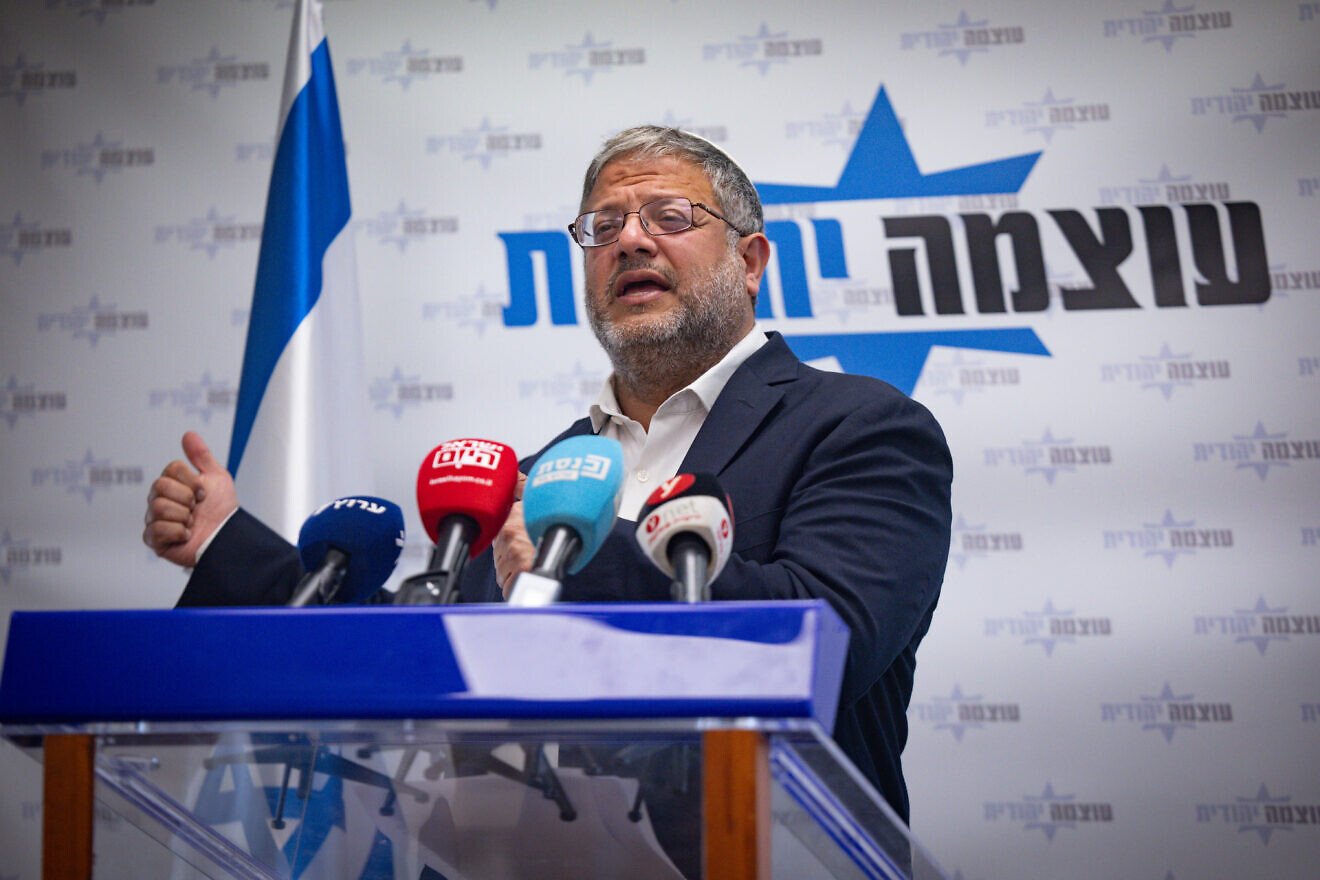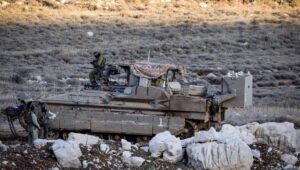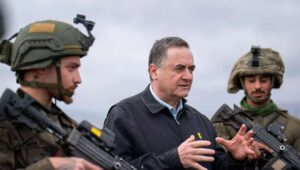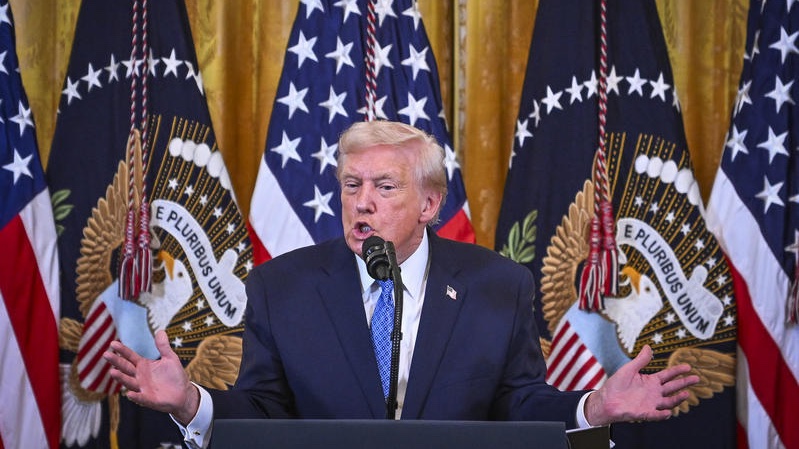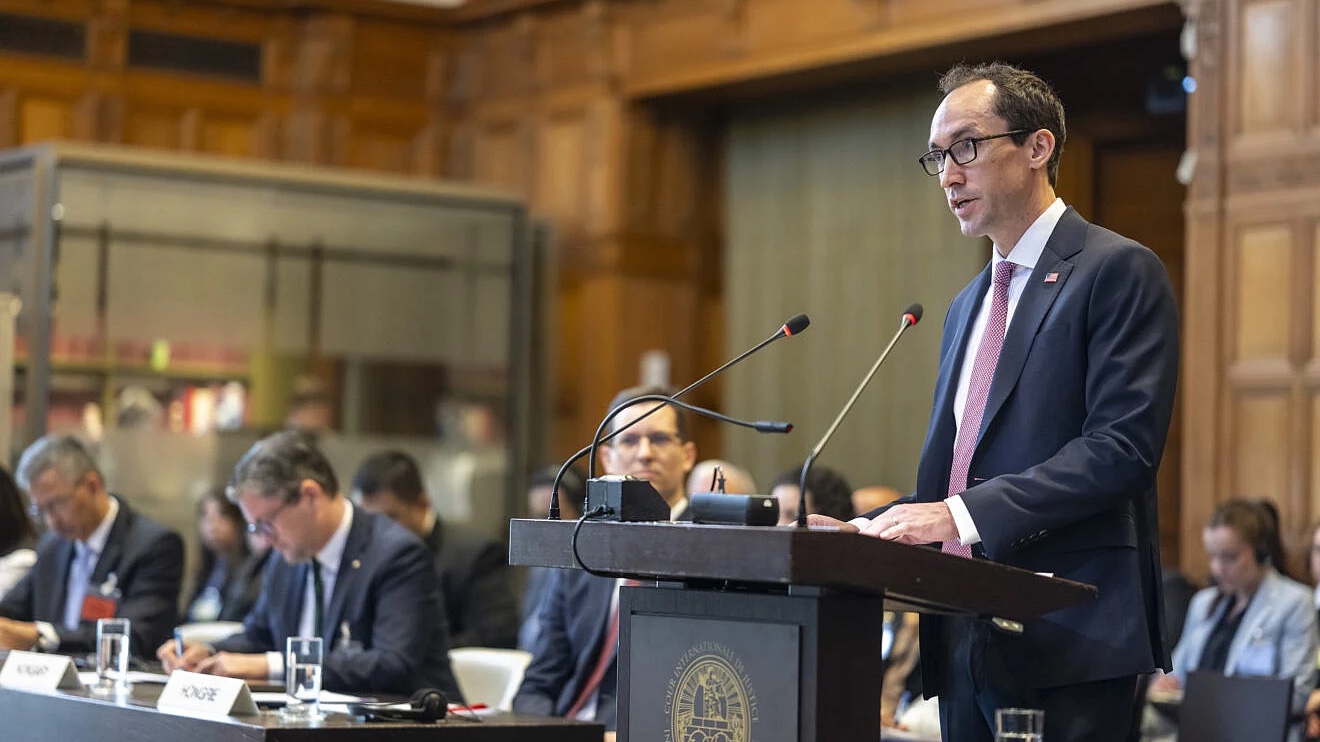(JNS) Israeli National Security Minister Itamar Ben-Gvir on Monday called for the assassination of Syrian leader Ahmed al-Sharaa due to his alleged responsibility for atrocities committed against his country’s Druze population.
“We need to do one more thing: Eliminate al-Julani,” Ben-Gvir told JNS at the Knesset, using the de facto president’s nom de guerre. “Get rid of him. He’s a jihadist. Why are we letting him live?
“We saw the pictures,” the minister continued, referring to massacres, beheadings and rapes, including of women and children, that were allegedly carried out by state-sponsored militias.
“I think Israel needs to understand: Once a jihadist, always a jihadist,” he said of al-Sharaa, who was a leading figure in Al-Qaeda before founding Hayat Tahrir al-Sham, which led the overthrow of the Assad regime in December 2024.
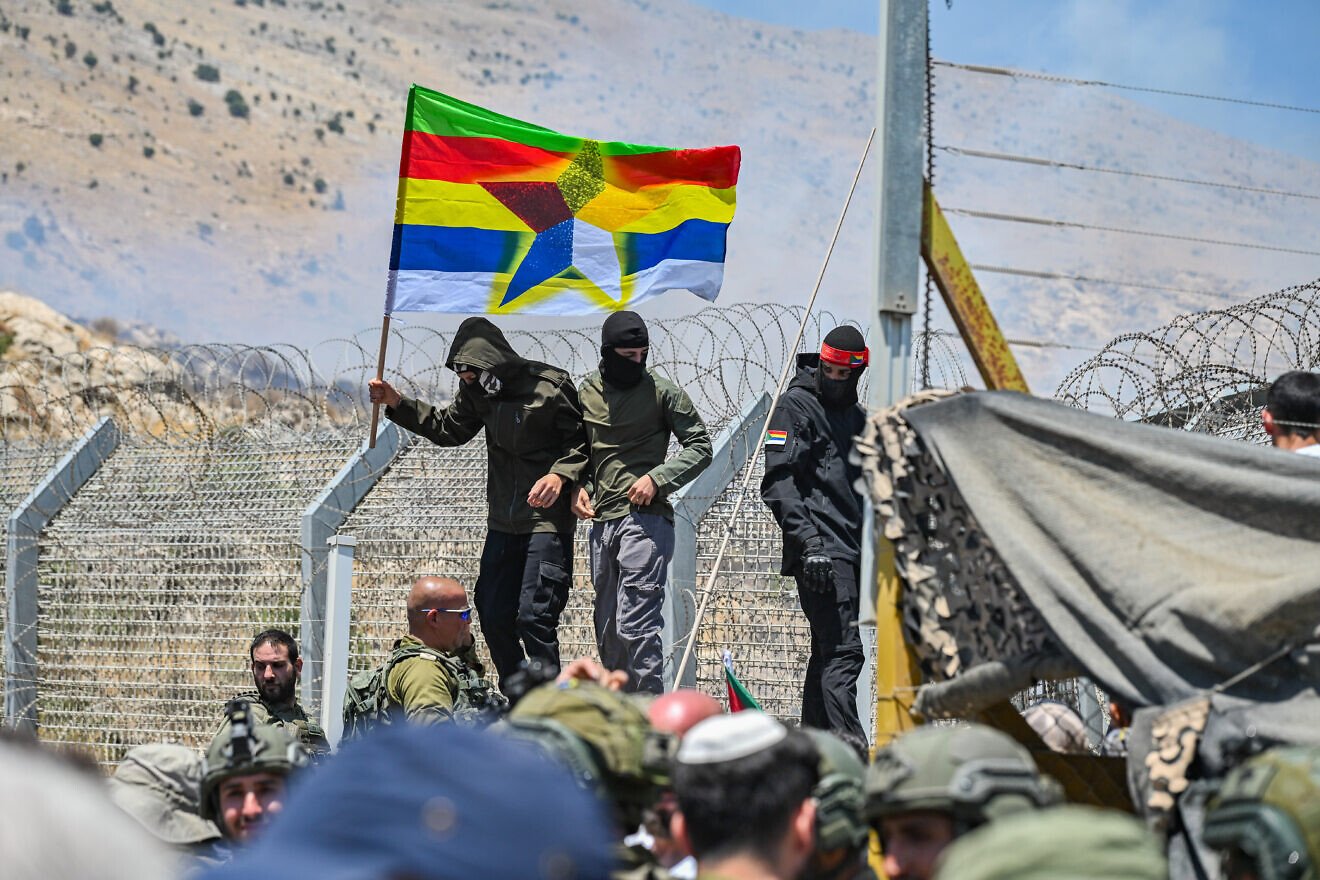
Druze residents protest in Majdal Shams, near the Israeli-Syrian border fence, in solidarity with their community in Syria, July 16, 2025. Photo by Michael Giladi/Flash90.
“I embrace our Druze brothers—they’re our brothers in every way,” said Ben-Gvir, noting that some 100 members of the community serve in the Israel Border Police, which falls under his purview as minister.
Benny Gantz, a past member of Israel’s War Cabinet and a former chief of staff of the Israel Defense Forces, told JNS on Monday that “it’s very good that the State of Israel is supporting the Druze” in Syria.

Leader of the Blue and White Party MK Benny Gantz leads a faction meeting at the Knesset, the Israeli parliament in Jerusalem, on July 21, 2025. Photo by Yonatan Sindel/Flash90
“It’s the responsibility of al-Sharaa to make sure that Syria is not being pushed into the ongoing jihadist approach. If that would be the direction, then any option should be on the table,” continued Gantz, who leads the opposition Blue and White Party in the Knesset.
“I think we should try and seek other opportunities, not just fighting, but if we have to fight, we’ll fight, and once we decide to fight, nothing is out of the question,” he said.
Yisrael Beiteinu Party leader Avigdor Liberman, who served as defense minister between 2016 and 2018, told JNS that Israel should set new ground rules with Syria “as quickly as possible.

Avigdor Liberman. Photo by Yonatan Sindel/Flash90
“To ensure the security of the State of Israel, in the Syrian context, that means two things. First, to protect the lives of the Druze there. Second—and we’re talking about a range of 60 to 70 kilometers—there shouldn’t be any jihadist militias there,” Liberman said.
According to him, “It doesn’t matter if they’re disguised as soldiers or as something else. At the end of the day, they’re jihadists …, the entire group from Idlib is a collection of radicals from all over the world.”
Syria remains “the kingdom of the most radical groups in the Muslim world,” Liberman emphasized, adding that even though al-Sharaa “suddenly wore a jacket or a suit, that doesn’t change anything.”

An armed fighter walks past a body in the southern Syrian town of Sweida on July 14, 2025, following deadly clashes between Bedouin tribesmen and local Druze forces. Photo: EPA/Mohammed Al Rifai.
The Israel Defense Forces on Wednesday carried out a series of airstrikes in southern Syria, targeting militias accused of participating in the attacks on Druze villages. The IDF also attacked Damascus, hitting the entrance to the Syrian regime’s army headquarters.
Defense Minister Israel Katz defended the moves on Monday, saying that “those who criticize the attacks are not well-versed in the facts.
“Israel’s attacks on regime targets in Sweida and Damascus were the only way to stop the massacre of Druze in Syria, the brothers of our Druze brothers in Israel,” he said.
The Jewish state’s policy, “including the IDF presence on Mount Hermon and the security zone and the protection of the Druze, is correct and responsible, reflecting strength and mutual responsibility,” the defense minister said.

Defense Minister Israel Katz visits an IDF post in Southern Lebanon, Dec. 22, 2024. Photo by Ariel Hermoni/Ministry of Defense.
US special envoy for Syria Tom Barrack, who also serves as ambassador to Turkey, told the Associated Press on Monday that Israel’s intervention created “another very confusing chapter” and “came at a very bad time.
“Israel’s view was that south of Damascus was this questionable zone, so that whatever happened militarily in that zone needed to be agreed upon and discussed with them,” Barrack said. “The new government [in Syria] coming in was not exactly of that belief.”
In the talks leading up to the ceasefire that he announced on Friday, Barrack said that “both sides did the best they can.”
He added: “Whether you accept that Israel can intervene in a sovereign state is a different question.”
Hundreds of Druze, a minority that split off from Shia Islam a thousand years ago, have been killed in the clashes in the Jabal al-Druze (“Druze Mountain”) region of Syria’s Sweida Governate.
Want more news from Israel?
Click Here to sign up for our FREE daily email updates


